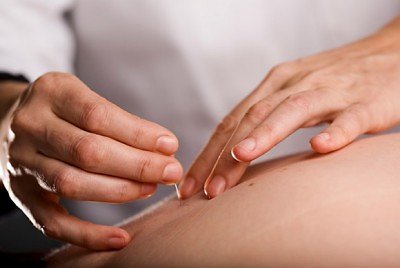What is Acupuncture?
Acupuncture is a branch of Traditional Chinese Medicine (TCM), and is an ancient Chinese practice of inserting very fine needles into specific points on the body to elicit healing - but it is also used as preventative medicine ( migraines, hay fever, asthma etc.), and to maintain health and wellbeing and strengthen a person's constitution.
Most people's experience of needles is of those used in injections and blood tests. Acupuncture needles bear little resemblance to these. They are much finer and are solid rather than hollow.
What Conditions Can it Help?
The health advisory body NICE advise acupuncture for headaches , migraines, back problems and osteoarthritis of the knees.
The list of conditions treatable with acupuncture according to the World Health Organization (WHO ) is much longer, including:
Addictions
Anxiety
Arthritis
Asthma
Bell's pulsy
Constipation
Chronic sinusitis
Depression
Eating disorders
Fatigue
Frozen shoulder
Hay fever
Indigestion
Insomnia
Irritable bowel syndrome
Menstrual problems
Menopausal problem
Panic attacks
Repetitive strain injury
Stiff neck
Sciatica
Strain/sport injury
Tennis elbow/ Golfer's elbow
Trigeminal Neuralgia
...and others
What Benefits can be expected?
The benefits of acupuncture frequently include more than just relief from a particular condition. Many people find that it can also lead to increased energy levels, better appetite and sleep, as well as enhanced sense of overall wellbeing.
WHAT WILL HAPPEN ON MY FIRST VISIT?
Your first consultation may be longer than subsequent sessions. The acupuncturist needs to assess your general state of health, in order to identify the underlying pattern of disharmony and give you the most effective treatment.
You will be asked about your current symptoms and what treatment you have received so far, your diet, digestive system, sleeping patterns and emotional state. The acupuncturist is likely to feel your pulse on both wrists, noting the quality, rhythm and strength. The structure, colour and coating of your tongue also gives a good guide to your physical health.
Once enough information has been gathered to determine the likely causes of your problems the acupuncturist can select the most appropriate treatment by inserting very fine needles to acupuncture points. However, the treatment areas and points may not always be close to the part of the body where the problem is experienced.
Other techniques of stimulating acupuncture points include cupping, electro-acupuncture and others. Massage or tapping with a rounded probe are methods particularly suitable for small children or for people with a fear of needles.
HOW OFTEN WILL I NEED TREATMENT?
In traditional acupuncture philosophy each person is considered as unique and therefore the number of treatments required depends on the individual. Some change is usually felt after five treatments. Normally you are recommended to visit your acupuncturist once or twice a week at first, although some conditions may need less frequent attention.
Sometimes the effect is fast, with other patients the effects are more subtle and they may need treatments over several months.
IS IT SAFE?
All members of the BRITISH ACUPUNCTURE COUNCIL (BAcC ) must observe a Code of Practice which lays down stringent standards of hygiene , use of sterile needles and other equipment. These procedures have been approved by the Department of Health .

